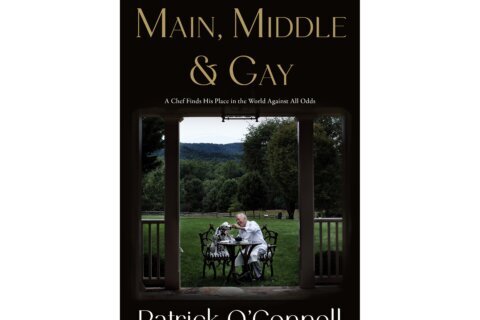Hear our full conversation on my podcast “Beyond the Fame.”
In the early ’80s, Squeeze songwriting duo Chris Difford and Glenn Tilbrook were hailed as the “heirs to the Lennon and McCartney throne” during the so-called “Second British Invasion.”
On Thursday, Tilbrook makes his way to America at City Winery in D.C., playing all of the Squeeze hits that drew those early Beatles comparisons.
“That was a thing for a while, that’s for sure, and that was very flattering,” he told WTOP. “They were looking for the new Beatles, the new Dylan, the new Springsteen, and none of them ever came, including ourselves! It’s a handy reference point. If you like them, you might like us. We had a fresh, youthful, slightly punky sound that was contemporary.”
Born in London in 1957, Tilbrook discovered music at a young age.
“There was always music playing around the house and I just gravitated toward it. I didn’t have any musical education, but there was a piano in the house and I had a guitar and I taught myself how to play,” he said. ” … I was always obsessed with it and it was always what I wanted to do.”
In 1973, Tilbrook met Difford at a pub called The Three Tongues.
“He said he’d be carrying a copy of The Times under his right arm. What he didn’t say was that he’d be wearing a multicolored overcoat, which would have been far easier to spot! We hit it off, went back to his house and he had some great songs,” Tilbrook said. “I did too. It was very fortuitous. We reinforced each other.”
In 1978, Squeeze’s self-titled debut was produced by John Cale.
“I don’t think he liked how poppy our songs were, so he subverted what Squeeze was into his take of what we should be,” said Tilbrook. “I have the utmost respect for that, but it didn’t really sound like us. The two songs we recorded without John were ‘Take Me, I’m Yours’ and ‘Bang Bang,'” the two big hits.
Thus, their second album “Cool for Cats” (1979) veered the band into a sound that he preferred on hits like “Up the Junction” and of course the title track. “The ‘Cool for Cats’ album is what our first album would have been if we had more control of it. It’s definitely more of a pop album that goes in lots of different directions — and I’m very proud of that,” he said.
Their third album “Argybargy” (1980) delivered one of their biggest hits with “Pulling Mussels (From the Shell),” which various critics called a “timeless cult classic,” “a brilliant slice of pop genius,” “a pop classic of the new wave era” and “a piece of pop mastery.” It was ahead of its time, sounding like it could have been a punk-pop track in the ’90s.
Eventually, America caught on to the British phenomenon in time for their fourth album “East Side Story” (1981). It featured their most iconic song “Tempted,” which was “the first time we got serious radio play more or less everywhere. … It was a wonderful moment. Paul Carrack transformed the song the way he sang it and it took us to a different place.”
More hits followed like “Black Coffee in Bed” on “Sweets from a Stranger” (1982), “Last Time Forever” on “Cosi Fan Tutti Frutti” (1985) and “Hourglass” on “Babylon and On” (1987), which reached new audiences thanks to MTV, just as Spotify introduces kids today.
“What’s interesting to me about Squeeze the last 15 years is how we’ve seen our audience increase way beyond levels that we’d seen for 20 years before that — back to the time in the ’80s when we had large audiences,” Tilbrook said. “There’s lots of folks our age, but there’s also lots of younger kids who have come to us through the internet or Spotify.”
In fact, Squeeze just recorded a brand new song this month called “Food for Thought,” which you’ll most likely hear at City Winery on Thursday night. “Chris and I hadn’t written together in five years before that,” he said. “It’s great to have that feeling again.”
Hear our full conversation on my podcast “Beyond the Fame.”








